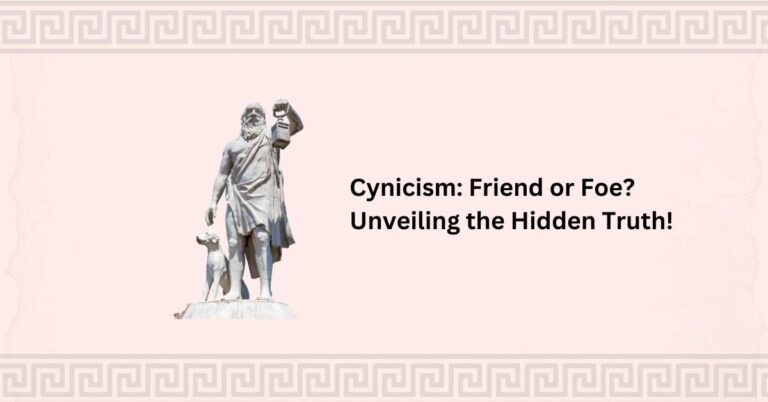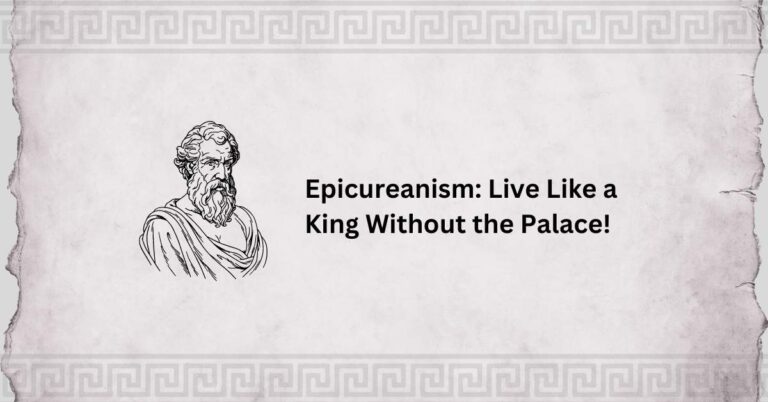Philosophical words with meaning: 25 words and their uses!
Ever find yourself lost in a philosophical debate, nodding along, but secretly wondering what half the words mean? Understanding philosophical terms isn’t just a nice-to-have—it’s a must. Without a solid grasp of this vocabulary, navigating philosophical texts can feel like trying to solve a puzzle without the edge pieces.
In this post, we’re not just throwing around big words to sound smart. We’re here to break them down, make them clear, and arm you with the knowledge you need to make sense of those complex ideas. By the end of this guide, you’ll not only have a clearer understanding of key philosophical concepts, but you’ll also have a handy reference list to keep those terms at your fingertips.
A) Importance of Philosophical Terms
The Role of Language in Philosophy
Language is the foundation of philosophical thought. In philosophy, words aren’t just about communication; they’re the very tools we use to build and dissect ideas. Every term carries weight and meaning, shaping how we approach and understand philosophical concepts. Precise terminology is crucial because even a slight misinterpretation can lead to completely different conclusions. Without clear and accurate language, philosophical discussions can become muddled, and the original ideas may be misunderstood or lost.
Common Challenges
Misunderstanding a philosophical term can lead to significant errors in interpretation. For example, confusing “a priori” with “a posteriori” can drastically alter one’s understanding of an argument. When these terms are misused, it can create a domino effect, leading to misinterpretation of entire philosophical theories. This is why having a solid grasp of philosophical vocabulary is not just helpful but necessary to engage in meaningful discussions and analyses. Accurate use of language ensures that ideas are communicated clearly and that discussions stay on track.
B) Philosophical Words List with Meanings
1. A Priori / A Posteriori
- A Priori: This term refers to knowledge that is gained through reasoning alone, independent of empirical evidence. For example, mathematical truths like “2 + 2 = 4” are known a priori because they are true by definition and do not require sensory experience to be validated. A priori knowledge is crucial in philosophy because it deals with concepts and logical relationships that are universally applicable, regardless of individual experiences.
- A Posteriori: Contrarily, a posteriori knowledge is derived from sensory experience and observation. For example, knowing that “It is raining outside” relies on sensory experience, as one must see or experience the rain to know it is occurring. This type of knowledge is significant in empirical sciences where observation and experimentation are fundamental to understanding the world.
2. Ontology
- Ontology: This branch of philosophy focuses on the nature of being, existence, and reality. Ontology seeks to answer questions about what kinds of things exist and how they can be categorized. For instance, ontology explores whether abstract concepts like numbers, properties, and relations have an independent existence or if they are merely conceptual constructs. Key questions include: “Do abstract entities like numbers really exist, or are they just useful fictions?”
3. Epistemology
- Epistemology: Epistemology examines the nature and scope of knowledge and belief. It tackles fundamental questions about how knowledge is acquired, validated, and what counts as justified belief. For example, epistemology scrutinizes how empirical evidence, reasoning, and intuition contribute to our knowledge. It is crucial for understanding the limits of human knowledge and how we justify our beliefs about the world.
4. Dialectic
- Dialectic: The dialectic method involves dialogue between opposing viewpoints to uncover the truth through reasoned argument. This process often includes thesis (an initial argument), antithesis (a counter-argument), and synthesis (a resolution that reconciles the two). For example, Hegel’s dialectic process illustrates how conflicting ideas can evolve into a higher understanding through a dynamic and iterative process.
5. Dualism / Monism
- Dualism: Dualism posits that there are two fundamentally different kinds of substances or realms, typically the mental and the physical. Cartesian dualism, proposed by René Descartes, argues that the mind and body are distinct entities that interact but have different natures. This view raises questions about how mental states and physical states relate and interact.
- Monism: Monism argues that there is only one kind of substance or reality. For instance, physicalism, a type of monism, holds that everything that exists is physical, and there is no non-physical realm. Monism challenges dualistic views by proposing that the diverse phenomena of the world can be explained through a single type of substance or reality.
6. Phenomenology
- Phenomenology: Phenomenology focuses on the study of conscious experiences from the first-person perspective. It aims to describe how things appear to us in our experiences without making assumptions about the external world. For example, Edmund Husserl’s phenomenology examines how subjective experiences, such as perceptions and emotions, shape our understanding of reality. This approach highlights the importance of individual experience in understanding phenomena.
7. Utilitarianism
- Utilitarianism: This ethical theory advocates for actions that maximize overall happiness and minimize suffering. A classic example is Jeremy Bentham’s principle of utility, which suggests that the best action is the one that produces the greatest happiness for the greatest number of people. Utilitarianism is often applied in public policy and ethical decision-making to evaluate the outcomes of actions based on their contributions to overall well-being.
8. Deontology
- Deontology: Deontology focuses on adherence to moral rules and duties rather than the consequences of actions. Immanuel Kant’s deontological ethics, for example, emphasizes that one should act according to principles that can be universally applied, such as treating people as ends in themselves rather than as means to an end. This approach contrasts with utilitarianism by prioritizing moral rules over the outcomes of actions.
9. Existentialism
- Existentialism: This philosophical movement explores the nature of existence, emphasizing individual freedom, choice, and the search for meaning in a seemingly indifferent universe. Existentialists like Jean-Paul Sartre argue that “existence precedes essence,” meaning that people are not defined by predetermined nature but by their actions and choices. Existentialism addresses the angst and responsibility that come with creating one’s own meaning and values in life.
10. Nihilism
- Nihilism: Nihilism is the belief that life lacks inherent meaning, value, or purpose. It challenges traditional values and asserts that since the universe is indifferent and devoid of objective meaning, individuals must confront and accept this reality. For example, Friedrich Nietzsche’s exploration of nihilism highlights the existential crisis that arises when traditional beliefs are questioned, leading to the need for individuals to forge their own path.
11. Absurdism
- Absurdism: Absurdism, closely related to existentialism, explores the conflict between humans’ desire for meaning and the silent, indifferent universe. Albert Camus argued that the search for meaning in a meaningless world creates an “absurd” condition. Absurdism suggests that while the universe may be devoid of inherent purpose, individuals can find contentment by embracing life’s absurdity and continuing to live fully.
12. Solipsism
- Solipsism: Solipsism is the philosophical idea that only one’s own mind is sure to exist. According to this view, knowledge of anything outside one’s own consciousness is uncertain, as one cannot be sure of the existence of external objects or other minds. Solipsism raises questions about the nature of reality and the limits of human perception and knowledge. For example, a solipsist might argue that the external world and other people are mere projections of one’s own mind.
13. Empiricism
- Empiricism: Empiricism is the theory that all knowledge is derived from sensory experience. Empiricists, such as John Locke and David Hume, argue that our understanding of the world comes from what we perceive through our senses rather than through innate ideas. Empiricism emphasizes the importance of observation and experimentation in acquiring knowledge and forms the basis of the scientific method.
14. Rationalism
- Rationalism: Rationalism holds that reason and intellect are the primary sources of knowledge, rather than sensory experience. Rationalists like René Descartes and Spinoza argue that certain knowledge is innate and can be attained through logical reasoning alone. Rationalism contrasts with empiricism by suggesting that some truths can be known independently of sensory experience.
15. Logical Positivism
- Logical Positivism: Logical positivism asserts that only statements verifiable through direct observation or logical proof are meaningful. This philosophy, associated with the Vienna Circle, argues that metaphysical and ethical statements are not objectively meaningful because they cannot be empirically verified. Logical positivism aims to clarify and simplify philosophical discourse by focusing on statements that can be empirically tested or logically analyzed.
16. Pragmatism
- Pragmatism: Pragmatism evaluates theories or beliefs based on their practical effects and applications. Philosophers like Charles Sanders Peirce and William James argued that the truth of a belief or theory is determined by its usefulness and practical consequences rather than its correspondence to an abstract reality. Pragmatism emphasizes action and practical results in assessing the value of ideas.
17. Structuralism
- Structuralism: Structuralism is an approach that examines underlying structures and systems within cultural and linguistic phenomena. This philosophy, associated with Claude Lévi-Strauss and Ferdinand de Saussure, explores how these structures shape and organize human experiences and knowledge. Structuralism focuses on understanding how various elements of culture and language function within a larger system.
18. Hermeneutics
- Hermeneutics: The theory and methodology of interpretation, especially of texts. Originally applied to biblical texts, it now extends to understanding and interpreting any form of communication. Hermeneutics explores how context, language, and preconceptions affect interpretation. For example, interpreting a classic philosophical text requires understanding its historical context and the author’s intentions.
19. Metaphysics
- Metaphysics: The branch of philosophy concerned with the fundamental nature of reality. It explores questions about what exists and the nature of being, such as the relationship between mind and matter. Metaphysical inquiries might include questions like “What is the nature of objects and their properties?” or “Do abstract concepts exist independently of human thought?”
20. Relativism
- Relativism: The idea that truth and moral values are not absolute but vary depending on perspective or context. For instance, moral relativism suggests that what is considered morally right or wrong can differ between cultures. Relativism challenges the notion of universal truths and emphasizes the role of context in shaping beliefs and values.
21. Deconstruction
- Deconstruction: A critical approach developed by Jacques Derrida that seeks to reveal and challenge the underlying assumptions and contradictions in texts. Deconstruction examines how meaning is constructed through language and how texts can be interpreted in multiple ways. It emphasizes the instability of meaning and the interplay of various interpretations.
22. Skepticism
- Skepticism: The philosophical attitude of doubting the certainty or reliability of knowledge. Skeptics question whether we can truly know anything with absolute certainty. For example, Pyrrhonian skepticism suggests that since our senses can deceive us, we should suspend judgment and accept that certainty is elusive.
23. Essentialism
- Essentialism: The view that entities have a set of attributes essential to their identity and function. For example, essentialism might argue that there are inherent qualities that define what it means to be a human. This contrasts with existentialist views that focus on individual freedom and the creation of essence through action.
24. Postmodernism
- Postmodernism: A broad intellectual stance that critiques and often rejects the grand narratives and ideologies of modernism. Postmodernism questions the idea of objective truth and embraces pluralism, relativism, and the idea that meaning is constructed rather than inherent. It challenges the notion of universal truths and emphasizes the role of language and power in shaping knowledge.
25. Phenomenalism
- Phenomenalism: The view that physical objects do not exist independently of our perception of them. According to phenomenalism, objects are merely collections of sensory experiences. For instance, a table is considered a set of experiences rather than a standalone entity. This view challenges the notion of material objects existing apart from our perception.
C) How to Use Philosophical Words Effectively
For Students
- Enhance Understanding: Use this list to familiarize yourself with key philosophical terms and concepts. Understanding these terms will help you grasp complex theories and arguments in your readings and lectures.
- Improve Performance: Incorporate these terms into your essays and discussions to demonstrate your comprehension and engagement with philosophical texts. Clear and accurate use of terminology can improve the quality of your arguments and analysis.
- Study Aid: Create flashcards or a glossary with these terms and their definitions. Regular review can reinforce your understanding and make it easier to recall terms during exams or in class.
For Enthusiasts
- Incorporate in Discussions: Use these terms to enrich your conversations about philosophy. Being familiar with these concepts allows you to contribute more meaningfully to discussions and debates.
- Enhance Writing: When writing about philosophical topics, use these terms accurately to convey your ideas clearly. This not only helps in expressing your thoughts but also shows your grasp of philosophical vocabulary.
- Explore Further: Dive deeper into each term by reading related philosophical texts or watching lectures. This will provide you with a broader perspective and deepen your appreciation of the concepts.
D) Common Misconceptions About Philosophical Terms
Misunderstood Terms
- A Priori vs. A Posteriori: People often confuse these terms, using “a priori” to refer to knowledge that is empirical. Remember, a priori refers to knowledge independent of experience, while a posteriori is based on experience.
- Dualism vs. Monism: Dualism is sometimes mistakenly used to refer to any belief in two aspects of reality, but it specifically refers to the distinction between mind and body. Monism, on the other hand, refers to the idea that only one kind of substance exists.
Examples of Misuse
- Utilitarianism: Some people incorrectly use “utilitarianism” to justify any action that benefits the majority, even when it disregards individual rights. Remember, utilitarianism focuses on maximizing overall happiness, but it must be applied carefully to consider all consequences.
- Existentialism: Existentialism is sometimes misunderstood as mere pessimism or despair. In reality, existentialism emphasizes individual freedom and responsibility, even in the face of a seemingly indifferent universe. It’s about finding meaning and making choices, not just resigning to despair.
E) Expanding Your Philosophical Vocabulary
Further Reading
- “Philosophy: The Basics” by Nigel Warburton: This book provides a clear and concise introduction to key philosophical concepts and terms. It’s a great starting point for expanding your vocabulary.
- “The Oxford Companion to Philosophy” edited by Ted Honderich: A comprehensive reference work with detailed entries on a wide range of philosophical terms and concepts.
- “An Introduction to Philosophy” by John Hospers: Offers a thorough overview of philosophical ideas and terminology, making it a valuable resource for learners at all levels.
Practice Tips
- Write Regularly: Use philosophical terms in your essays and written reflections. This practice helps reinforce your understanding and ensures you can use the terms accurately and confidently.
- Engage in Discussions: Participate in philosophy forums, study groups, or online discussions. Applying terms in conversation will help solidify your grasp and reveal how others use these concepts.
- Create Flashcards: Make flashcards with terms on one side and definitions on the other. Regularly review them to keep terms fresh in your mind.
- Teach Others: Explain terms and concepts to friends or fellow students. Teaching is a powerful way to deepen your own understanding and highlight areas where you might need further clarification.
Conclusion
Understanding philosophical terms is crucial for anyone engaging with philosophical texts and discussions. This list provides a foundation for grasping complex concepts and improving your ability to analyze and articulate philosophical ideas. By familiarizing yourself with these terms and using them in your studies and conversations, you’ll enhance both your comprehension and expression in the realm of philosophy. Embrace these terms as tools for clearer thinking and more insightful discussions, and continue to explore and expand your philosophical vocabulary to enrich your intellectual journey.



